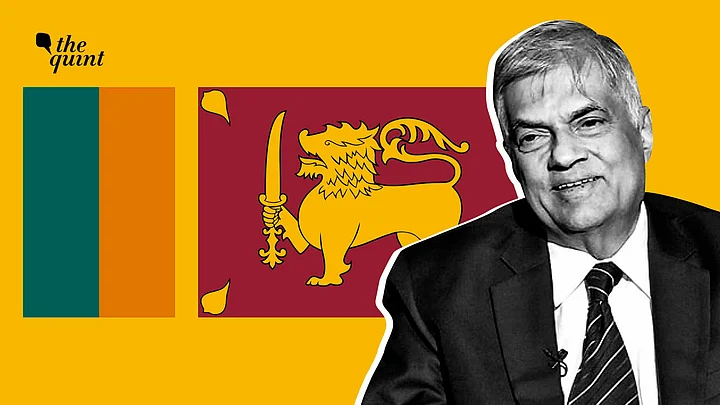Ranil Wickremesinghe took oath as Sri Lanka's new prime minister on Thursday, 12 May, marking the fifth time the 73-year-old became PM of the country.
This comes after former PM Mahinda Rajapaksa resigned from the post on 9 May amid the worst economic crisis facing the country since 1948.
His resignation came after pro-government supporters clashed with protesters outside President Gotabaya Rajapaksa's residence, armed with sticks, injuring at least 23 people.
After Mahinda Rajapaksa's resignation, the president had said on Wednesday that he would appoint a new prime minister and a Cabinet this week.
Who is Ranil Wickremesinghe?
Wickremesinghe has served as the country's prime minister four times before. He entered politics in the 1970s and was made deputy foreign affairs minister at the age of 28, making him one of the youngest people in the country's political history to take up such a senior post.
The 73-year-old law graduate is also the sole parliamentary representative of the United National Party (UNP), which at one time dominated Sri Lankan politics but was decimated in the latest election in the country.
He was first appointed the country's PM in 1993, after the assassination of former premier Ranasinghe Premadasa, who was killed by the Liberation Tigers of Tamil Eelam (LTTE).
His first term in office, however, lasted only a little more than a year.
Peace Talks With the LTTE
His second stint as PM came in 2002, when he led his party from the front and won the country's general election in a landslide victory.
He had taken over at a time the country was still reeling from a brutal civil war between Tamil guerrillas and the Sri Lankan government.
His main task then was to garner international support to rebuild the war-torn country. As a result of his international outreach, Sri Lanka received more than $4 billion in development aid.
He also started peace talks with the LTTE during this time and inked an all-important ceasefire, for which he was widely praised.
However, a tussle with the president had him sacked in 2004.
Wickremesinghe has lost two presidential elections and led his party to a long line of election defeats. This led to the tag of "record loser" being attached to him, including by some of his own supporters.
Easter Bombings: The Biggest Failure
When Maithripala Sirisena became president of Sri Lanka in 2015 after defeating Mahinda Rajapaksa, he appointed Wickremesinghe as the prime minister on the basis of a Memorandum of Understanding (MoU) signed between their parties.
However, he was removed from the post of PM in October 2018 by Sirisena amid rising debt and a slump in the economy, and Mahinda was appointed PM in his place.
The decision was challenged by Wickremesinghe in the country's Supreme Court, leading to a constitutional stalemate that saw him returning as PM eventually by end-2018.
The biggest failure of the government with Wickremesinghe as prime minister and Sirisena as president came in April 2019, when 269 people, including at least 45 foreigners, were killed and hundreds more injured after suicide bombings in churches and luxury hotels on the day of Easter.
The attack, undertaken by a radical Islamic terrorist group, was seen as the most gruesome since the civil war in Sri Lanka came to an end, and effectively brought the country to a standstill.
The attack was blamed on an "intelligence failure" on the part of the government and "miscommunication" between Sirisena and Wickremesinghe.
Wickremesinghe resigned as PM in 2019 after the attacks.
Amid brewing anger in the country and a demand for justice for the hundreds of lives lost, the Rajapaksas were reelected on the plank of nationalism in the 2019 election.
Challenges Ahead
The veteran politician takes over as PM during the worst economic crisis facing the country since 1948.
The island nation has been going through an economic meltdown, during which prices of essential commodities like rice, milk, and oil have skyrocketed, resulting in massive nationwide protests and political instability.
The country is also facing foreign debt of as much as $51 billion and a rising import bill, with little to nothing left in its foreign currency reserves to foot it.
However, Wickremesinghe is seen as an advocate of free-market capitalism, which might help in efforts to bring Sri Lanka out of its financial woes amid negotiations with the International Monetary Fund (IMF) for a bailout package.
